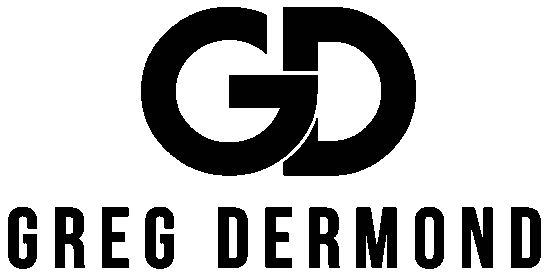
To be successful, especially in sales, sellers must make a different kind of connection with their customers.
It was early in my selling career. I finally coordinated and received confirmation on the date and time of the conference call. The con-call would consist of my technical sales engineer and myself talking to a new and highly influential prospect and her colleague evaluating our product offerings.
It took a couple of months to nail the time and date down between everyone’s busy schedule. But here we were, ready and anxious to make an immediate impact.
After we shared pleasantries, we asked what piqued their interest in evaluating our products. They both shared their goals and current needs and that we were one of several vendors that they were reviewing.
Well, that was the last thing I wanted to hear. Once I listened to the prospect speak of other vendors, my competitive juices took over. My calm demeanor went right out the window, and I instantly transformed into a talking product brochure.
I began a nonstop product pitch of how and why our products were better and threw-up a list of all the features and benefits I could think of. In fact, out of the remaining forty-five minutes of our one-hour call, I spoke nonstop for about forty of it.
I’m pretty sure my colleague was wondering if I was ever going to take a breath and why he was part of the call with me.
I didn’t find out too much more information from our prospects, and we finished up the call without any meaningful next steps.
Most of us in sales can probably relate to this story. As we eventually learn, we need to talk in the same proportion of how many ears and mouths we have during any initial and ongoing communication exchange.
But there is also a critical element that I’ve learned and have incorporated into every conversation and email correspondence I have with prospects and customers. Not only has it helped reduce actionable friction, but it helps pave the way for collaborative understanding that catalyzes momentum in the direction of your product/ solution offerings.
It’s as essential as ever in today’s selling environment. It has helped me close more business than any other single factor. But more importantly, it also helped solve my customer’s problem faster and more efficiently.
Modern buyers demand more from sellers because they are empowered with more and more online resources. This leads to more informational access, ease of comparison shopping, and instant feedback and reviews within seconds.
It’s no longer sufficient for sellers to provide product overviews and presentations, overcome objections, negotiate prices, and then push to close the deal.
To be successful, sellers must learn and adapt to making a different kind of connection with buyers/ prospects. This goes way beyond describing features and benefits.
It comes down to questions.
Sounds easy, right? But it’s the consistency of asking the insightful and appropriate questions at the right time, in the right cadence, that makes all the difference.
Deb Calvert, the author of the book “DISCOVER QUESTIONS”, states the following:
“In order to truly connect with buyers, sellers need to know how to ask strategic questions that are respectful, time-efficient, relevant, stimulating, value-adding, and collaborative.”
If you think about it, asking meaningful and strategic questions sounds simple and so “sales 101.” Still, it’s easy to start pitching and stating how wonderful your offerings are by rolling off all of the features and benefits you could provide.
According to an article written in the Harvard Business Review (H.B.R.): The Surprising Power of Questions, “most people, in general, don’t ask enough questions.” More importantly, for sales professionals, I would submit that most don’t ask enough questions either.
Some of the more common reasons why we may limit our focus on asking questions are:
1) We worry that we’ll ask the wrong question and be viewed as rude, uninformed, or incompetent;
2) We may be overconfident in our knowledge and think we already know the answers;
3) But the biggest inhibitor could be that most people don’t believe or understand how beneficial good questioning can be.
The H.B.R. article went on to state:
“People don’t ask enough questions. In fact, among the most common complaints, people make after having a conversation, such as an interview, a first date, or a work meeting…”
Questions have such power that behavioral scientists have found that asking people about their future intentions significantly changes subsequent behavior. This is a phenomenon known as the Mere-measurement effect.
Thoughtful questions enable potential customers to better understand their situation and to further recognize if and how it can be improved. Hence, the reason why the skill of questioning is an essential part of the selling process.

Also, insightful questions reveal that you are mindful and aware of your prospective clients’ needs, inspiring them to have confidence in you. And when it comes to trust, sellers need to start the conversation and dialogue on the right foot.
As most of us know, the profession of selling has a tainted reputation. Prospects everywhere have been conditioned to tread and proceed with caution. They also assume sellers are only money-motivated, sly, tricky, and self-absorbed. Unfortunately, one too many amateurs in the sales profession prove this to be true.
So, it’s up to the rest of us to educate, compensate, and overcome the profession’s misguided and untrustworthy ones.
Of course, the sheer number of questions is not the only factor that influences the quality of a conversation, and it won’t make you more successful in sales. You need to consider the type, tone, sequence, and framing too.
Think of a conversation as a dance that requires partners to be in sync — it’s a mutual push-and-pull that unfolds over time. Questions and thoughtful answers foster smoother and more-effective interactions, and they strengthen rapport and trust, which is what prospects want.
This leads me to one of my favorite quotes:
“Experts don’t walk around claiming to be experts. They demonstrate their expertise through the questions they ask and the insights they share.” — Adam Grant, Best-Selling Author and Professor at Wharton.
It is helpful to think of your arsenal and use of questions as investments you make in the sales process, and ultimately, your customers’ success.
There are many types and descriptions of questions covered by the plethora of good sales books and training material out there. Thus, I won’t cover them here — perhaps in a future article.
There is only one reason we sell anything: our ability to reduce the pain by moving others to change. We can’t lessen the problem if we don’t know what it is. It’s not what we say that matters as much as what we ask and connect in the area psychologically crucial to the customer.
To be the problem-solver we sought to be in selling, we need to embrace the skill of asking questions that matter.
As Deb Calvert states in her book mentioned above, “DISCOVER QUESTIONS”, states the following: “The top performers are not necessarily the ones who know the product line best. Superior product knowledge can even be a trap, leading to an over-dependence on reciting facts and figures about the product’s bells and whistles.”
There is no better way to show how much you care than by understanding a prospect’s unique needs and circumstances than by asking timely and insightful questions that genuinely add value.
“The wise man doesn’t give the right answers; he poses the right questions” — Claude Levi-Strauss
There is a saying that’s been around for a while in the sales profession: “A.B.C — Always Be Closing.” As much as I enjoyed that when I first started in sales, I’ve come to learn and love the variation of it: “A.B.A. — Always Be Asking.” When it comes down to it — questions are magical when appropriately applied.
Thank you for reading — and remember, directly or indirectly, and to varying degrees, everyone’s in sales!
The opinions expressed here are my own and do not reflect the official position of my current or prior employers or its partners or customers.
